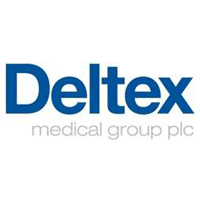Ewan Phillips, Deltex Medical’s Chief Executive, commented: “Complications after surgery are unpleasant, expensive to treat and reduce patients’ post-operative survival. The ability to eliminate over half of these is of huge value to both patients and healthcare providers.
FEDORA is the most important randomised controlled trial yet of ODM. It is not only the largest ever randomised trial, but also the first multi-centre one. It highlights that monitored administration of vaso-active drugs as well as fluids is important in optimal haemodynamic management. It also shows that the benefits of ODM are achievable in patients who are otherwise considered low or moderate risk.”
Deltex Medical Group plc (LON:DEMG), the global leader in Oesophageal Doppler Monitoring, today announced the results of the largest randomised controlled trial to date of its proprietary fluid management and cardiac output ODM system.
Accepted for publication in the British Journal of Anesthesia, the FEDORA trial found use of ODM guided goal-directed haemodynamic therapy (“GDHT”) during major elective surgery significantly reduces postoperative complications and length of hospital stay, adding to an already extensive evidence base for the Company’s ODM technology.
Conducted by researchers in Spain and funded by the Spanish Government, the FEDORA trial was a prospective, multi-centre, randomised controlled trial aimed at evaluating the impact of ODM guided administration of intravenous (IV) fluids and vasoactive drugs on postoperative complications following major elective abdominal surgery. 420 patients were analysed as part of the trial. Patients were randomised to the GDHT group or the control group. For patients in the GDHT group, anesthetists used Deltex Medical’s CardioQ-ODM+ system to guide administration of fluids, inotropes and vasopressors by monitoring stroke volume, mean arterial pressure and cardiac index.
During the 180 days post-surgery, researchers measured the incidence of moderate or severe post-operative complications in both the GDHT and control groups. They found those in the GDHT group experienced 75 per cent. fewer complications. There were statistically significant reductions of between 75 per cent. and 100 per cent. in several specific major complications including acute kidney injury, acute pulmonary oedema, respiratory distress syndrome, pneumonia, and both superficial and deep surgical site infection.
Furthermore, the number of patients suffering at least one post-operative complication was halved and median length of stay for patients in the GDHT group was two days shorter than the control group.
Lead researcher, Professor Jose María Calvo Vecino, Chief of Anesthesia and Intensive Care at the University of Salamanca, Spain, commented:
“This powerful study isolates the impact of oesophageal doppler monitoring. While clinicians understand the need to maintain optimal fluid balance and organ perfusion in patients considered to be at high risk, this study demonstrates a striking impact in the moderate risk surgical patient. Reducing overall risk of complication by half, and even more dramatic reduction in specific complications such as acute kidney injury, points to the significant potential of ODM technology if adopted as standard of care in this lower risk group.”
The trial is online at: http://bjanaesthesia.org/article/S0007-0912(17)54207-5/fulltext


